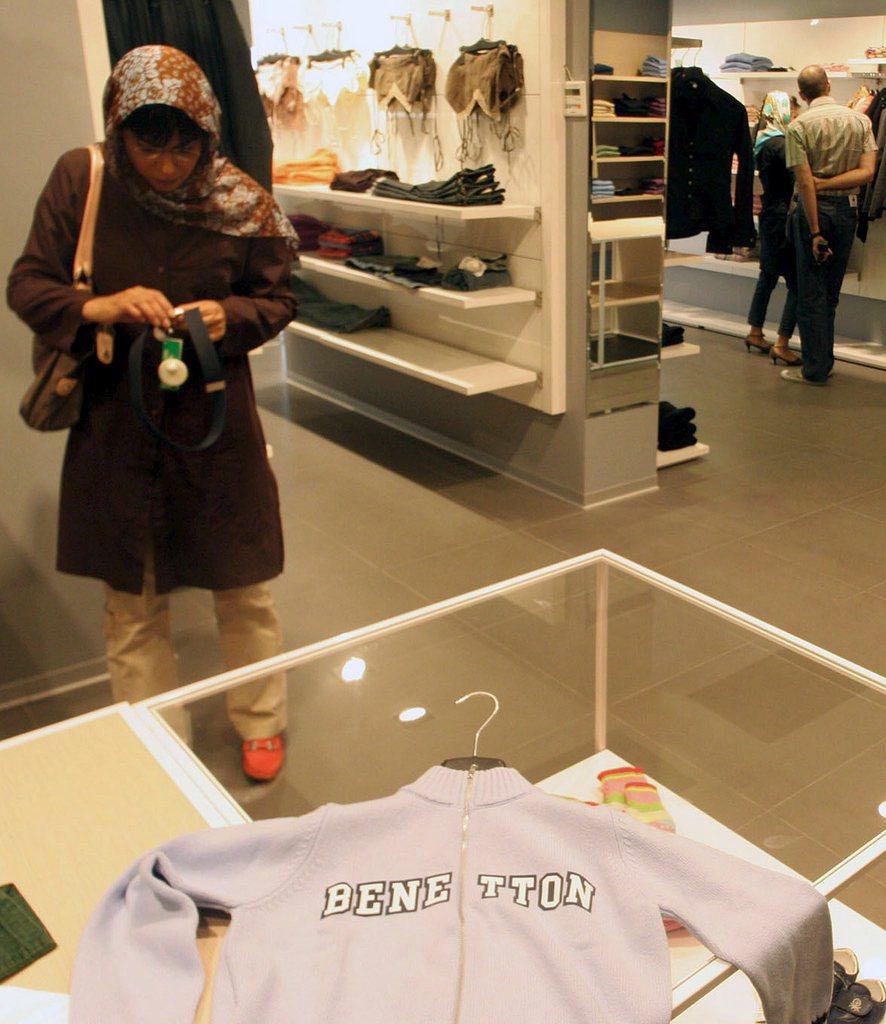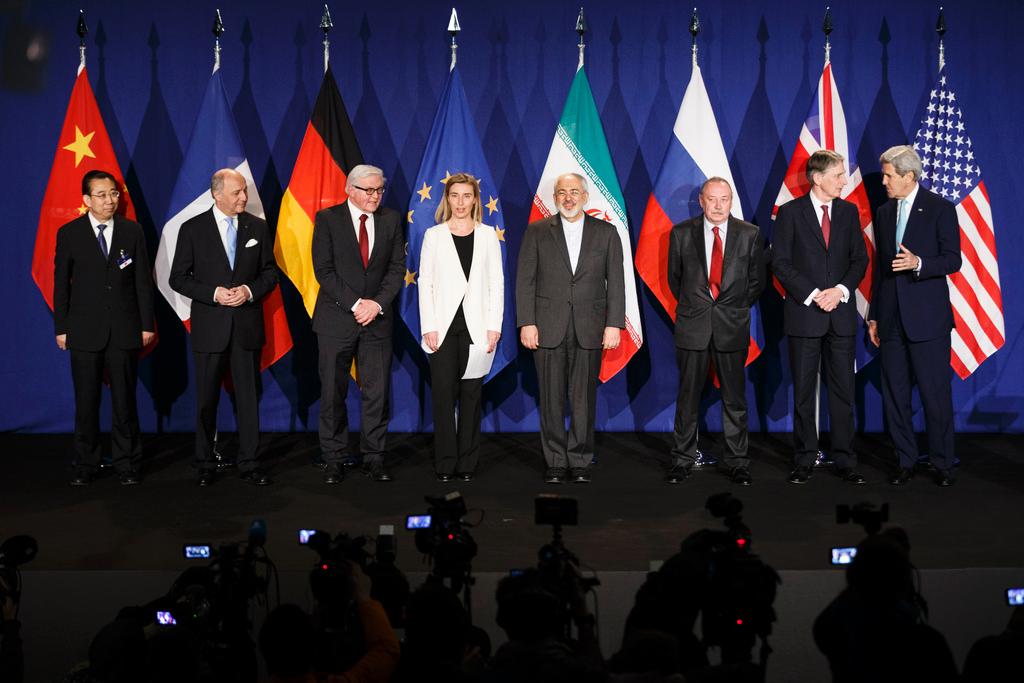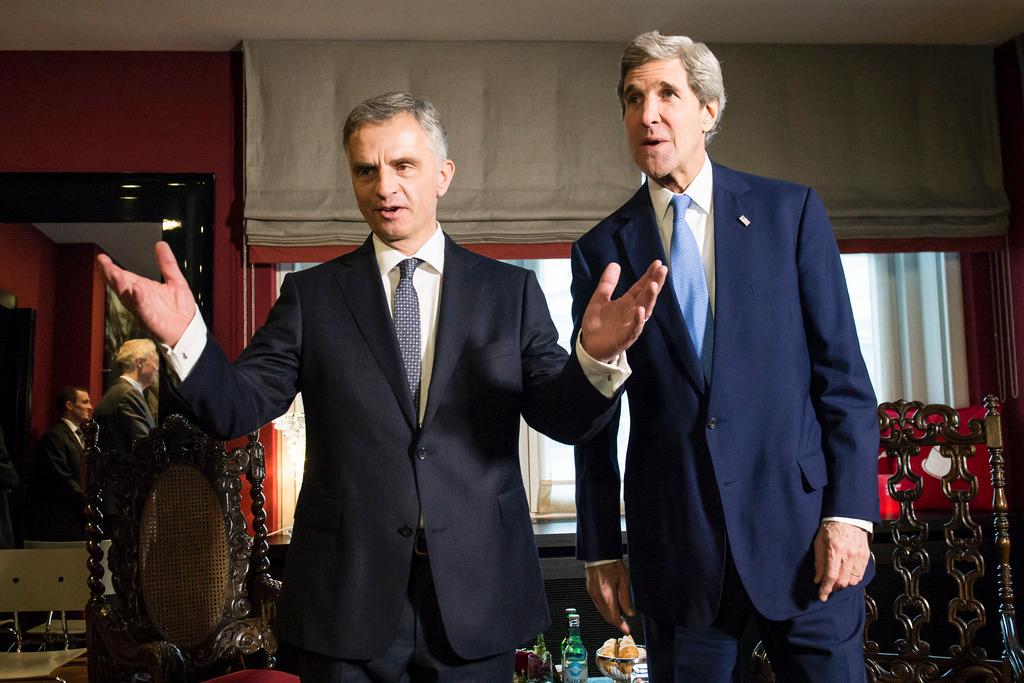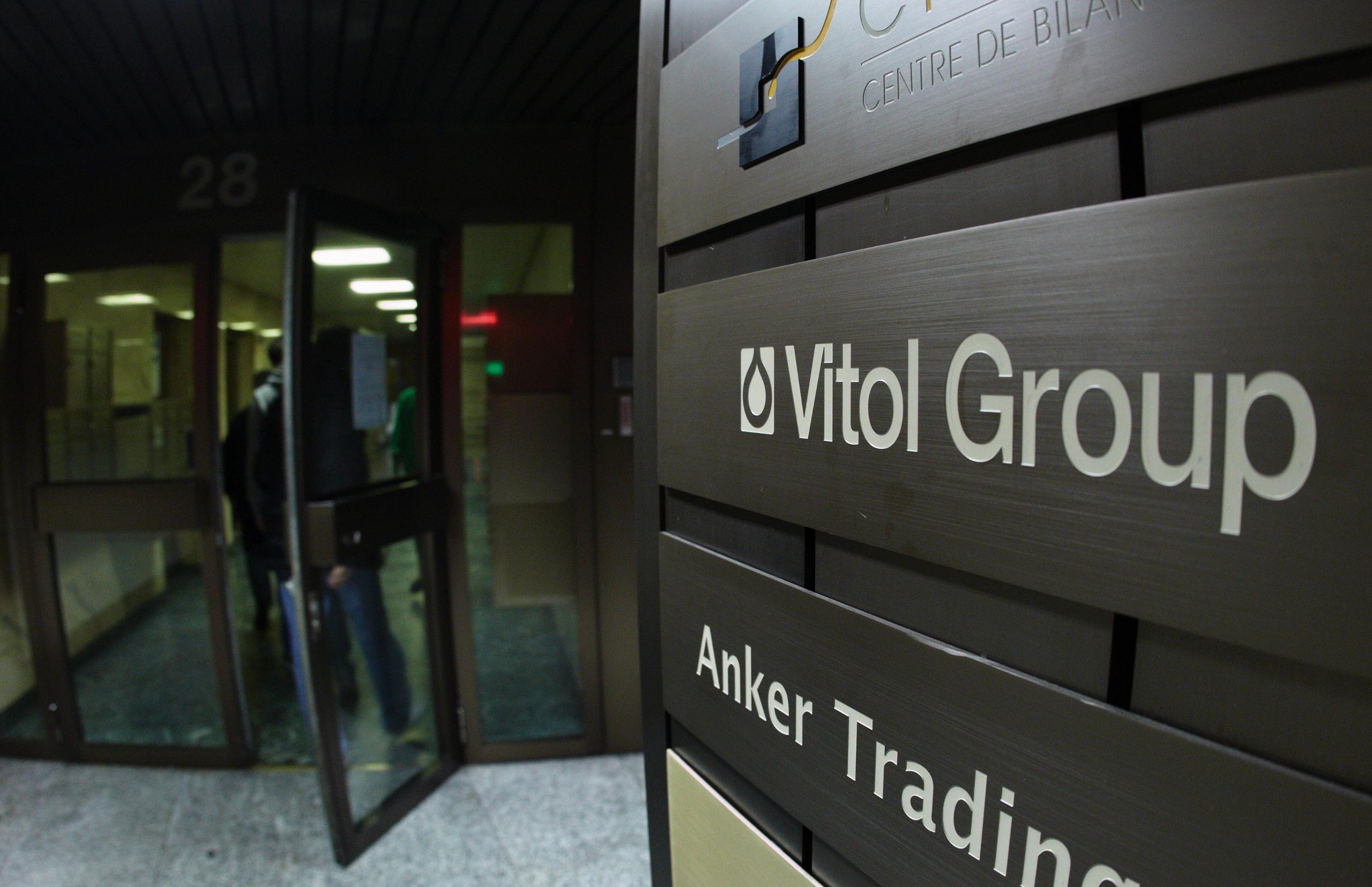Switzerland set to do business with Iran

Switzerland’s business representatives are beginning to explore the potential for trade with Iran, even though doing business with the sanction-hit state remains delicate and the nuclear deal is not yet finalised.
An outline agreement to curb Iran’s nuclear programme was reached in Lausanne after marathon talks with six major powers on April 2. The preliminary deal, which should also provide sanctions relief for Iran, is to be implemented by June 30 as part of a more comprehensive agreement.
Hopes that there will be a positive outcome are also growing outside diplomatic circles. Western business representatives are already trying, also through official channels, to make contact with Iran.
This is not surprising: with its vast gas and oil resources and more than 80 million inhabitants, many of whom are well-educated and wealthy, Iran has great economic potential, especially if sanctions are lifted.
Even the Swiss State Secretariat for Economic Affairs (SECO)External link is keen to cultivate relationships with the Islamic country. On Sunday, a delegation of economic representatives under the leadership of former ambassador to Iran Livia LeuExternal link will travel to Tehran in order to determine economic opportunities.
“We would like to find out how the Iranian government wants to proceed until negotiations are concluded, and after the sanctions are lifted,” said Leu, who is the cabinet’s delegate for trade agreements, who served in Tehran until 2013.
Leu does not name names, but she reveals: “apart from members of SECO and the Swiss Business Federation, economiesuisse, company representatives from different business sectors will also travel to Iran”.
While there, the delegation will be in contact with ministries, authorities and economic players. It is important for business representatives to find out more about business culture in Iran and whether their products and services would have a future in Iran. “It’s definitely worth going there and getting an idea of the market yourself,” Leu said.
Discreet business
Business representatives who have been doing trade with Iran during the embargo are equally reserved towards media inquiries. The pharmaceutical and food industries in particular, as well as certain products in the manufacturing, watch and other industries were not directly affected by the sanctions.
It is not only small- and medium-sized Swiss companies that are active in Iran; multinationals, such as food giant Nestlé, cement company Holcim or pharmaceutical company Novartis have also been present.
A NovartisExternal link representative will be part of the delegation. The company confirmed that it had a representative office in Iran. “We have an agreement with an Iranian firm for local production and distribution,” it said. Novartis was keen to “provide patients with drugs in strict compliance with the economic sanctions and regulations imposed by the United States, European Union and Switzerland”.
Novartis did not want to comment on how it handles money transactions in a country that is excluded from the global transaction mechanism SWIFT. “We do not reveal financial details,” the company said.
BühlerExternal link, based in Uzwil in St Gallen in eastern Switzerland, has been present in Iran since 1976.
“Apart from its headquarters in Tehran, Bühler has its own production site in Astara. Being present in the country enables us to provide the best service to our Iranian customers,” writes the long-established company, which sells mills and other food processing equipment on the Iranian market. The company, which employs more than 10,000 people worldwide and also manufactures products for the car, packaging and electronics industries, refused to provide any details on payments.
Embargo effects
The managing director of Bühler’s regional office in Tehran, Sharif Nezam-Mafi, is also the deputy chairman of the Iran-Switzerland Chamber of CommerceExternal link. Most Swiss companies operating in Iran are members of the chamber, which the SECO delegation will also visit.
“The sanctions have done a lot of damage to the economy of this rich country,” said Nezam-Mafi in an interview with Swiss public radio.
The approximately $100 billion (CHF 95 billion) Iran has made with oil exports, which are frozen in foreign bank accounts, will go back to Iran after the embargo has been lifted.
“The Iranian economy is hungry for investment,” said Nezam-Mafi, nevertheless pointing out that investments were largely controlled by the state and “riddled with corruption and nepotism”.
In an interview with swissinfo.ch, his counterpart in Switzerland, Hassan Akbarzadeh, agreed that the embargo had done a lot of damage to Iran. The native Iranian has lived in Switzerland for more than 40 years and is the president of the Zurich-based Swiss-Iranian Chamber of Commerce. “The sanctions have mainly affected those who were already disadvantaged. The embargo has increased poverty but has less affected the wealthy.”
However, business and private life had become more complicated and more expensive for most Iranians, said Akbarzadeh giving an example from his own experience. “How can you possibly send money to your children, who study abroad, if no bank is willing to do bank transfers to Iran?” You are often considered a bit suspect when speaking to the bank in person or via phone about contact with Iran, he continued.
According to the chambers of commerce, payments are often processed via third countries, such as Dubai or Turkey; a fact that banks have not confirmed yet. The Zurich Cantonal Bank, which according to the Swiss-Iranian Chamber of Commerce had processed payments to Iran for a while, told swissinfo.ch that it had “completely withdrawn from doing business with Iran in 2010 due to sanctions imposed by the EU and the UN”.
Money issue
SECO’s Leu agrees that money transactions are still the biggest stumbling block in trade relations with Iran.
Even though the sanctions on Iran imposed by the EU and Switzerland are not as stringent as those the US has enforced over the past 35 years, the US embargo has been affecting Swiss-Iranian trade relations that have nothing to do with it.
From a US perspective, companies have to decide between doing business with the US or Iran – this is why banks in particular include US sanctions in their risk analyses. “Most of them have stopped collaborating with Iranian banks, even with those not mentioned on the sanctions list,” the Swiss ambassador said.
Another challenge in dealing with Iran is corruption, even though the country only ranks 144th out of 177 countries on the Corruption Perceptions Index (CPI). “Corruption is a global phenomenon,” Leu responds to the question of how companies could avoid getting into trouble when doing business with Iran. “The OECD has developed rules on how to avoid corruption, to which SECO refers when Swiss companies do international business.
When asked whether human rights were going to be discussed in any of the meetings, Leu responded that Switzerland’s economic interests were a priority in the upcoming trip to Tehran.
In 2007 the Swiss government followed the UN Security Council resolution and imposed sanctions on Iran. In 2011 it agreed to step up sanctions, in line with important Swiss trade partners. A further tightening took place in 2012. In 2014 it partially lifted the sanctions.
The sanctions encompass in particular the delivery and procurement of armaments, repression and dual-use goods and technologies (military and civilian use). Delivery bans are applied to particular goods in the oil, gas and petrochemical industry and diamonds. There are also bans on services and financing in relation to these goods. In addition, financial assets of particular individuals, companies and organisations have been frozen.
Translated from German by Billi Bierling

In compliance with the JTI standards
More: SWI swissinfo.ch certified by the Journalism Trust Initiative





You can find an overview of ongoing debates with our journalists here . Please join us!
If you want to start a conversation about a topic raised in this article or want to report factual errors, email us at english@swissinfo.ch.